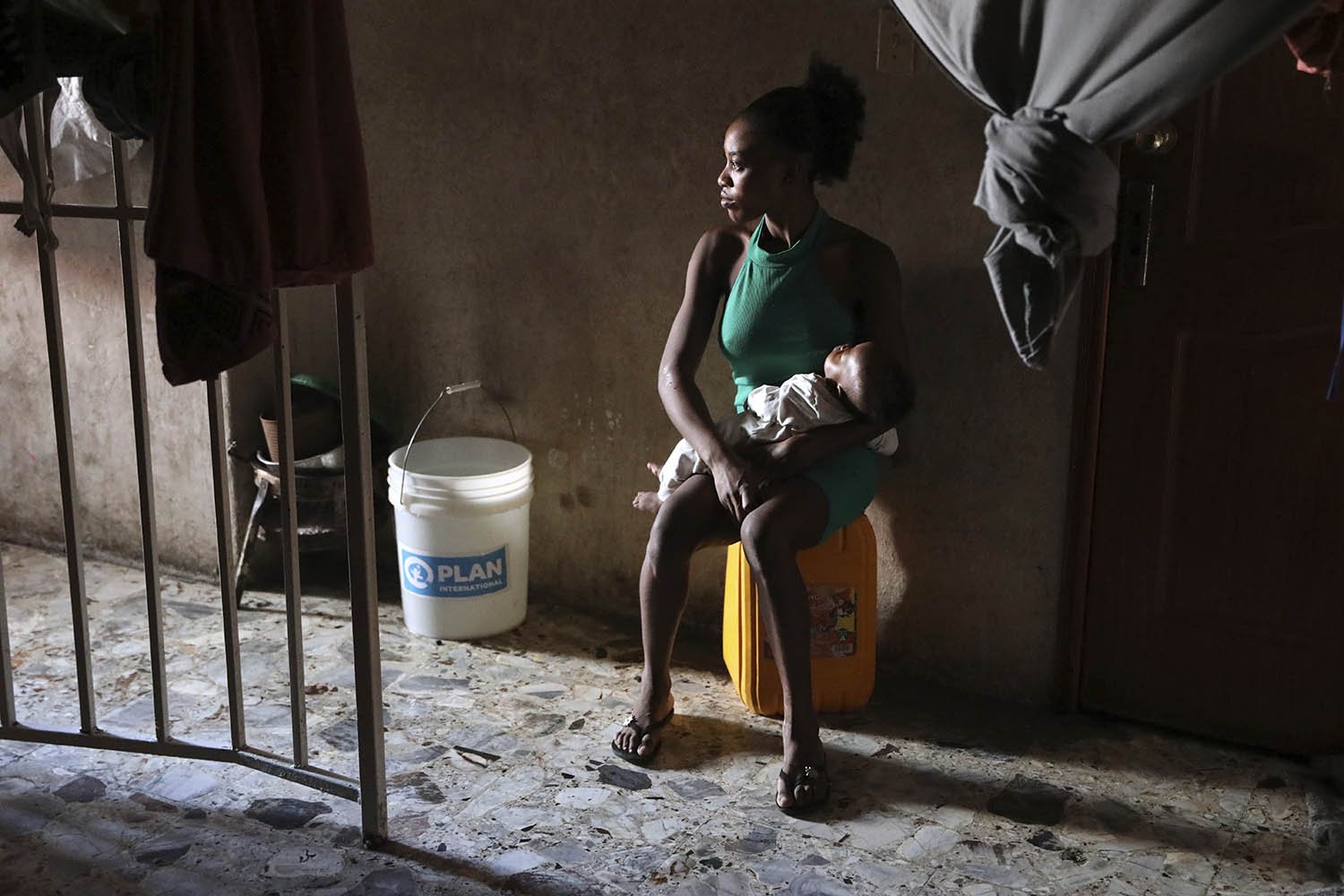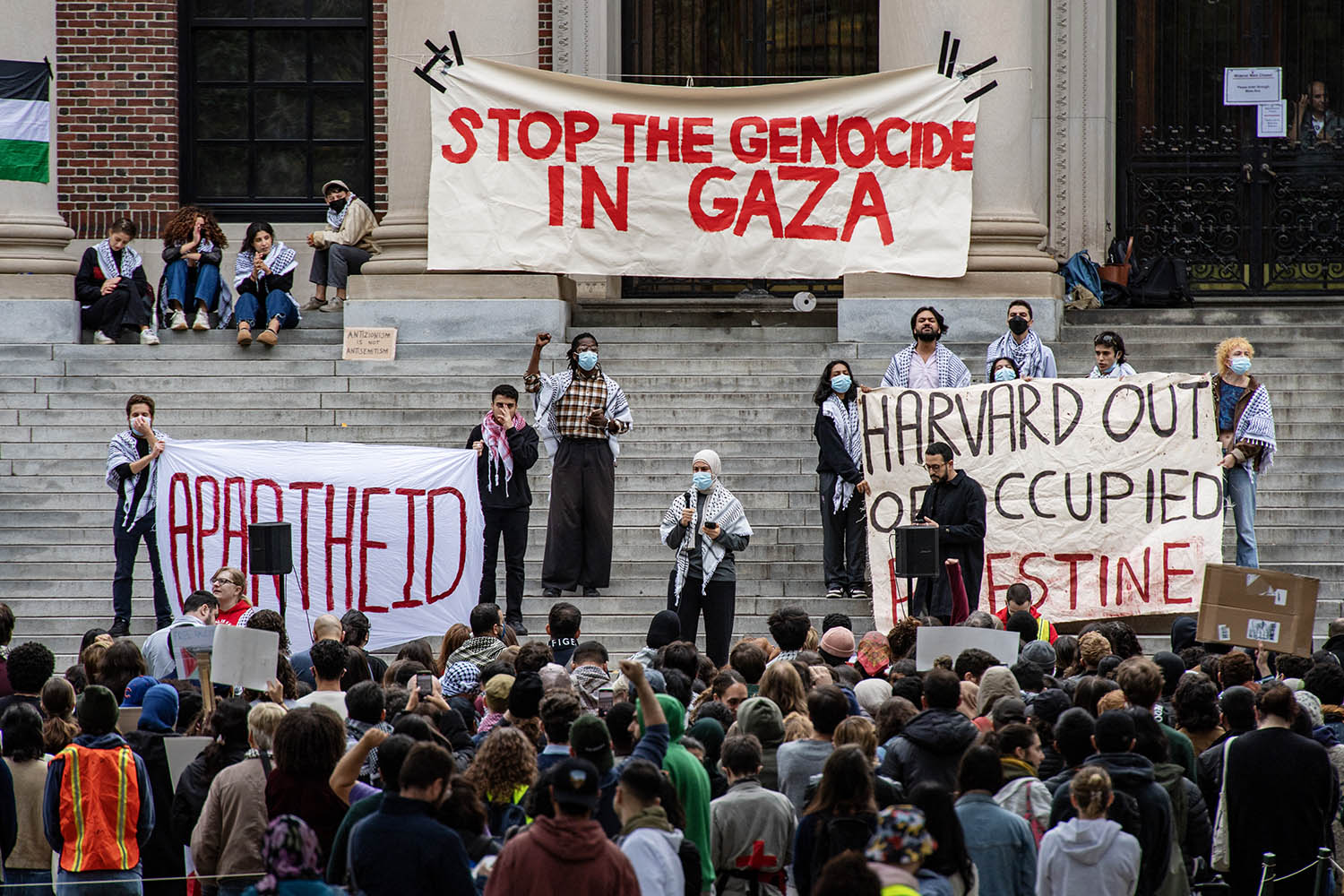
Last week an investigation by Israel’s internal security agency, Shin Bet, concluded that Benjamin Netanyahu’s policy to allow Qatari money into Gaza was one of the key failures that precipitated the Hamas-led attacks on Israel on October 7.
The findings have intensified calls for an independent investigation and scrutiny of Netanyahu’s leadership.
The walls are closing in on Israel’s prime minister as he fends off the charges, damning poll numbers and growing calls from hostage families to mount a national inquiry.
This week, a survey by the Israel Democracy Institute revealed that about 73 per cent of Israelis say Netanyahu should take responsibility for October 7 and either resign now or after the war.
In addition to the flow of funds from Qatar to Gaza, which bolstered the military wing of Hamas, the Shin Bet identified several more policy failures that led to the events of October 7, including
- a “policy of quiet” towards Hamas, which allowed the group to grow stronger;
- divisions in Israeli society, particularly exacerbated by controversial 2023 legislation to gut the judiciary, which projected weakness to Israel’s adversaries;
- Israel’s violations of the religious status quo on Jerusalem’s Temple Mount – where the government has permitted daily Jewish prayer despite a long-standing agreement that only Muslims be allowed to pray there – and abuse of Palestinian prisoners.
Shin Bet acknowledges its own responsibility for missing the scale, timing and location of the attack, but points the finger explicitly at Netanyahu for failing to act.
- In May 2023, agency chief Ronen Bar warned Netanyahu that war with Hamas was inevitable and urged pre-emptive strikes on its leaders. Netanyahu dismissed him, saying “the balance of threats against Hamas is strong”.
- By September 2023, Shin Bet recommended assassinating the group’s senior leaders. Netanyahu rejected the plan.
Then there’s the matter of money. Between 2018 and 2023, hundreds of millions of dollars entered Gaza with Netanyahu’s approval, initially as a response to a financial and growing humanitarian crisis in the Strip engendered by Israel’s blockade of the territory.
Every month, Israeli security officials drove a Qatari diplomat from the Israel-Jordan border across the country and into Gaza, suitcases in tow, where $100 bills would be handed out to pay Hamas employees’ salaries and support families in need. By 2021, Qatar was spending up to $30 million per month in the Strip. The payments continued up to October 2023.
According to Amos Gilad, a former senior official at Israel’s defence ministry, the idea was simple: “If you fed [Hamas] with money, they would be tamed.”
Many in Israel’s intelligence community say, in accordance with Shin Bet, that this policy freed Hamas up to focus its budget on its military build-up rather than on services for its own citizens. While the investigation has not been published in full, reports suggest Shin Bet has provided proof that money was siphoned from civilians to the military wing of Hamas.
But there appears to have been another strategy behind the payments. In 2015, Bezalel Smotrich – now Netanyahu’s finance minister – referred to the Palestinian Authority (PA), which rules the West Bank, as “a burden” and Hamas as “an asset”. He wasn’t alone in thinking so.
In 2019, Netanyahu said at a party meeting: “Anyone who wants to thwart the establishment of a Palestinian state has to support bolstering Hamas and transferring money to Hamas… This is part of our strategy – to isolate the Palestinians in Gaza from the Palestinians in the West Bank.”
For Netanyahu, sustaining political and geographic fragmentation between Hamas and the Fatah-led PA was considered key to preventing a unified Palestinian leadership. Without this he could continue to claim that Israel had no partner for peace, and therefore Israel could not countenance any territorial concessions.
Netanyahu is not happy about those trying to sully his name.
- Last week, hostage families were denied access to the Knesset’s visitors gallery for a debate on a National Commission of Inquiry into the events leading up to October 7. Instead, they were met with batons by Knesset guards, with three people requiring medical treatment. When Netanyahu eventually addressed the parliament, he argued that a state commission would be “predetermined”.
- Tensions are also rising between the prime minister and Shin Bet chief Ronen Bar, who Netanyahu reportedly pushed to resign last week following the probe. Bar says he won’t step down from his position until the remaining hostages are released and a state commission is established to investigate the events of October 7. While the two are in a stand-off, Netanyahu’s justice minister has begun the process of firing Israel’s attorney general, whose deputy reminded Netanyahu days ago that he lacks the legal authority to force the Shin Bet chief out.
Trump – whose administration broadly supported the Qatari cash transfers – is now negotiating directly with Hamas, apparently tired of Netanyahu’s stalling on ceasefire advancements. US officials claim the talks were a “one-off”, but they push Netanyahu further into a corner. As the ceasefire falters, a return to war may offer him urgent political cover.
Photo credits: Leon Neal/Getty Images













